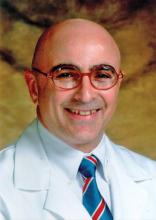At our academic medical center, all the physical interventions are part of our falls prevention
program. I was intrigued by the findings of Dr. Clyburn and Dr. Heydemann that
there was no conclusive medical evidence that multifactorial prevention
programs are effective in preventing falls in the acute hospital setting.
The authors did highlight the correlation between falls and delirium. The HELP intervention did demonstrate
that orientation, therapeutic activities, early mobilization, vision and
hearing, oral volume repletion, and sleep enhancement reduced the development
of delirium, which in turn led to a reduction in falls. Yet despite this finding,
the researchers commented that the “literature is not adequate to support its
consideration as a medical evidence-based guideline”.
I must ask Dr. Clyburn and
Dr. Heydemann what they recommend as a program for falls prevention, based on their
review of the literature.
I would have liked the
authors to comment on how falls are defined and reported. This has a major impact
on outcomes and interventions (that is, controlled falls, falls with injury, or
falls without injury).
Geno J. Merli, M.D., is
chief medical officer and senior vice president of hospital administration at Thomas Jefferson
University Hospital
in Philadelphia.

